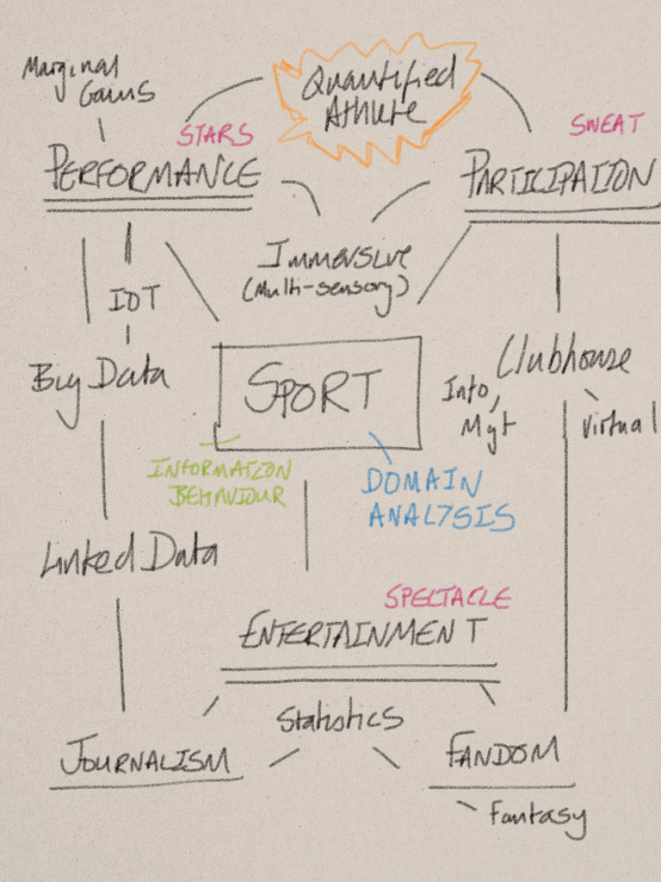Today I created this website to support research I’m conducting as part of an MSc in Information Science at City University, London. At #citylis we have been encouraged from the very start of our course to engage with web publishing and social media platforms to amplify our thinking, exchange ideas, share resources, collaborate with other students and relevant practitioners, practice our writing and reflect on our learning. These activities become even more important as we enter the more isolated part of our course, the research project, and no longer have weekly on campus interactions with our colleagues.
Blogging was a mandatory part of our Digital Information Technologies and Architectures course, enthusiastically encouraged by Ernesto Priego, and we learned how to design and craft a blog architecture and maintain an online presence. Some, like Dominic who has already written a wonderful introduction to his dissertation, have opted to add to and extend that initial blog. I have decided to create a new website as I think my research theme will appeal to a slightly different, and more interdisciplinary audience than my DITA blog. This is a space for athletes and sport scientists as much as librarians, information architects and technologists.
In some respects choosing a dissertation topic is the hardest part. Over six months the #citylis curriculum has expanded our horizons and added to the depth of our knowledge revealing many research paths as enticing as the trails that snake into unknown woods when out running. Every course has thrown up an aspect of information history, practice or future that would be wonderful to research. Our dissertation tutor Professor David Bawden has written about the range of topics we have selected. Ideas that I considered include: What is a Document in the Digital Age?, Realising the Memex: Linked Data, Associative Indexing and Digital Information Management, the Promise and Pathologies of Digital Preservation, From Liked to Linked: Assessing the Emergence of Web 3.0, The Shelfie and the Reading Record: Protecting and Sharing Identity via Reading Patterns and Understanding the Implications of ECJ C–131/12 for Archiving, Cataloguing and Information Seeking. All are interesting topics and are still very much on my research themes radar over at 16blue.me.
Ultimately as I sat through information domain lectures on maths, chemistry, law, advertising, music, arts and humanities, healthcare, history and business I thought: where is the sport? Where is sporting information and analytics, where are the many ways that sport data is being visualised, the implications of how technology is changing sport from professional athletes to amateurs tracking and sharing their data via the many devices and data platforms emerging, the growth of data analytics in sport, the BBC sport ontology that underpinned its World Cup and Olympic Games coverage, the schema.org sport extensions, the enthusiasm for fantasy sports and its use in teaching data fluency and information literacy, the growth of virtual sports and the potential use of immersive and augmented tools in sport training and broadcasting, the information and knowledge sharing initiatives such as Australia’s Clearinghouse for Sport to name some examples I’d noted during the course.

Sketching ideas on sport as an information domain
For most of my adult life my leisure time has been filled to a large extent by sport:
- as an athlete I played competitive hockey for over 20 years and am now a regular trail runner
- as an administrator I ran the South Women’s hockey league, sat on England Hockey and regional governance committees and held several committee positions at my hockey club
- as an official I trained for and qualified as a Level 1 hockey umpire
- as a spectator I am Bath Rugby and Arsenal fan and follow most major sporting events.
Throughout all these roles and spaces I handled a great deal of information and data whether for my personal activity or for coaching or managing sporting information. This gave me an initial rough taxonomy of sport as an information domain:
- Participation (Athlete, Coach or Official)
- Professional
- Performance
- Serious Leisure
- Wellbeing
- Governance
- Rule Making
- Funding
- Competition and Events
- Support
- Sports Medicine
- Statistics and Analysis
- Clothing and Equipment
- Spectating
- Journalist
- Fan
- Parent
Like many other domains, sport is an increasingly information heavy and data rich domain of activity yet even a cursory scan of the literature suggested studies in library and information science were hard to find. Perhaps there are not that many LIS folk who are also sports fans or maybe sport information and analytics has come to be seen as the intersection of computer and data science with sport science whether then of interest to LIS? I am an information scientist and a sports fan so I decided to focus my research on connecting some of the dots and asking what LIS theories and perspectives could bring to sporting information.
So, I chose to take aspects of the course that interested me: theoretical frameworks like domain analysis and information behaviour, linked data and documentary form innovation and use them to shed light on an information domain central to my life but hiding in the library and information shadows. This all gave me three motivating research questions:
The latter question will be the subject of my masters dissertation and the broader questions will be covered by this blog.